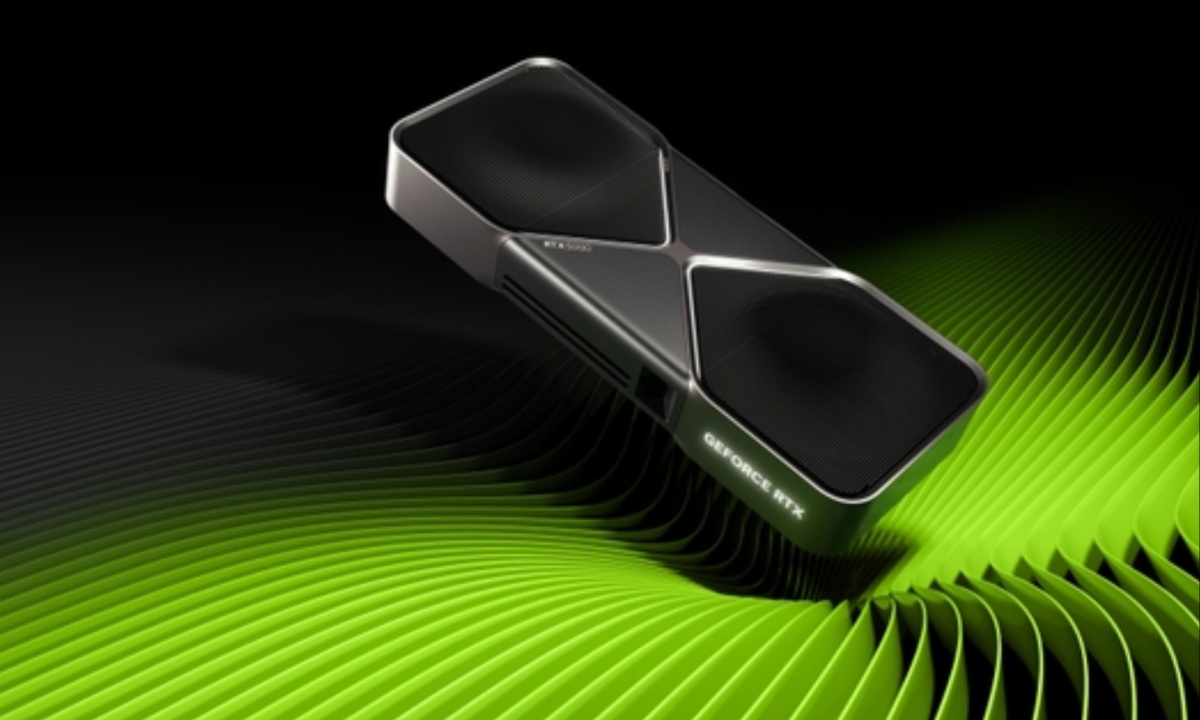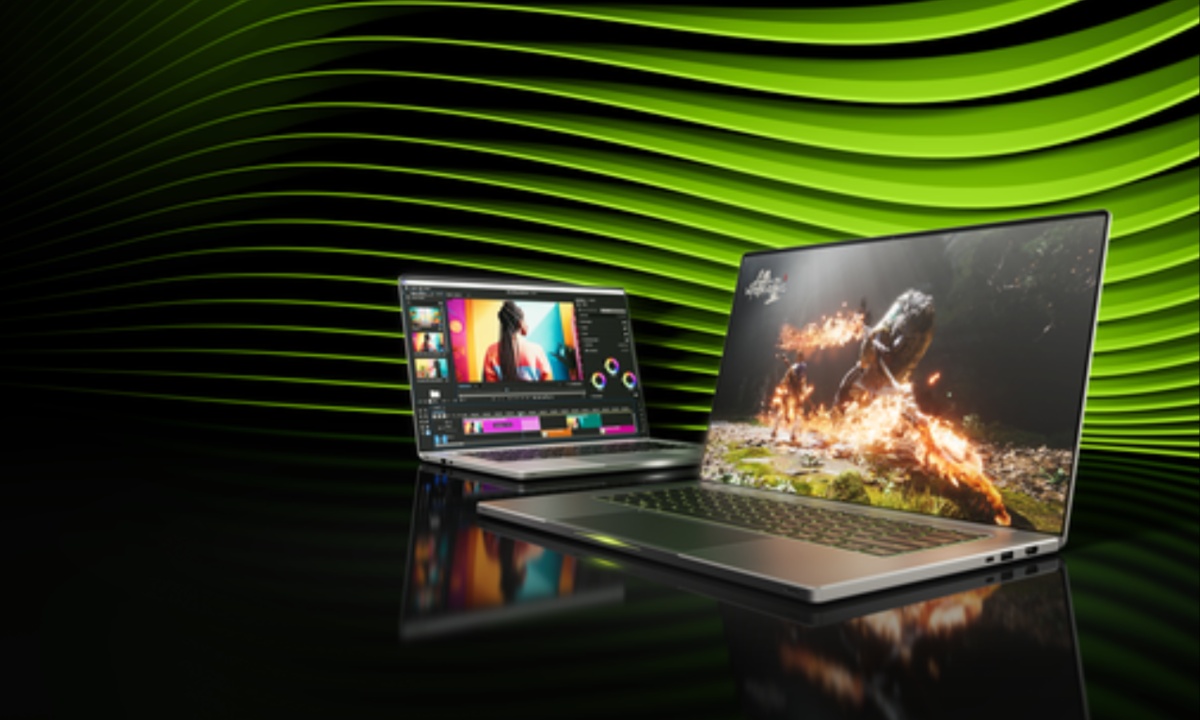NVIDIA CEO Jensen Huang took the stage at CES 2025 to present the company’s highly anticipated Blackwell series of GPUs. The RTX 50 series lineup will include the RTX 5070, 5070 Ti, 5080, and the flagship 5090, with prices ranging from $549 to $1,999.
These GPUs are set to launch in January, with laptop variants following in March, starting at $1,299. The announcement coincided with NVIDIA briefly becoming the most valuable company globally, highlighting the company’s influence and market leadership.
The RTX 5090 Founders Edition will feature 32GB of GDDR7 RAM and 21,760 CUDA cores. NVIDIA claims it can deliver up to twice the performance of its predecessor, particularly in ray-traced games such as Cyberpunk 2077 and Alan Wake 2. Demonstrations showed the 5090 running Cyberpunk 2077 at 242 fps, a significant leap from the RTX 4090’s 109 fps. The GPU’s advancements in processing power and graphics capabilities showcase a major leap in gaming performance.

Central to the new series is NVIDIA’s DLSS 4 technology, which introduces multi-frame generation that can produce up to three additional frames for every one traditionally rendered. While DLSS 4 will be available for older RTX GPUs, its most advanced feature, multi-frame generation, is exclusive to the RTX 50 series. Games optimized for DLSS 4 will experience substantial performance improvements, although titles limited to DLSS 3 will see smaller boosts.
The RTX 5070 offers 6,144 CUDA cores and 12GB of GDDR7 memory. According to NVIDIA, it can match the performance of the RTX 4090 when paired with DLSS 4, though its rasterization performance improvements are modest. The RTX 5070 Ti, equipped with 8,960 CUDA cores, is stated to be twice as fast as the 4070 Ti. These specifications suggest the 50 series provides scalability across various price points while maintaining a strong emphasis on advanced AI-driven features.
The power requirements for these GPUs are substantial, with the RTX 5090 requiring a 1,000-watt PSU due to its 575W power draw. Despite the high energy demand, the Founders Edition cards maintain a slim two-slot design. During the event, NVIDIA showcased a next-gen Assassin’s Creed game featuring realistic ray tracing, emphasizing the role of AI in shaping the future of gaming. NVIDIA promises to deliver more information about the Blackwell series in the days ahead.
| Feature | RTX 5090 | RTX 5080 | RTX 5070 Ti | RTX 5070 | RTX 4090 |
|---|---|---|---|---|---|
| Architecture | Blackwell | Blackwell | Blackwell | Blackwell | Lovelace |
| CUDA Cores | 21,760 | 10,752 | 8,960 | 6,144 | 16,384 |
| AI TOPS | 3,352 | 1,801 | 1,406 | 988 | 1,321 |
| Tensor Cores | 5th Gen | 5th Gen | 5th Gen | 5th Gen | 4th Gen |
| RT Cores | 4th Gen | 4th Gen | 4th Gen | 4th Gen | 3rd Gen |
| VRAM | 32 GB GDDR7 | 16 GB GDDR7 | 16 GB GDDR7 | 12 GB GDDR7 | 24 GB GDDR6X |
| Memory Bandwidth | 1,792 GB/sec | 960 GB/sec | 896 GB/sec | 672 GB/sec | 1,008 GB/sec |
| TGP | 575W | 360W | 300W | 250W | 450W |




